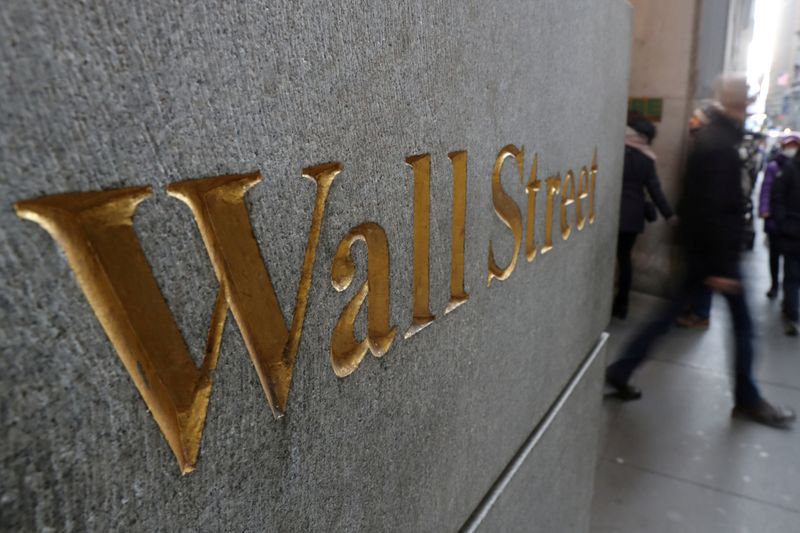By Matt Scuffham
NEW YORK (Reuters) - As Wall Street banks reported quarterly results this week, investors wondered about the staying power of the trading bonanza that has floated profits, offsetting problems in traditional lending businesses that have been hurt by the pandemic.
Trading revenue was up 4% to 29% at the five U.S. banks with major trading operations. Otherwise, lower interest rates hit lending income and prompted banks to add to loan-loss reserves.
Goldman Sachs Group Inc (N:GS) and Morgan Stanley (N:MS) benefited most, because they do not have the lending operations of rivals like JPMorgan Chase & Co (N:JPM), Bank of America Corp (N:BAC) or Citigroup Inc (N:C).
Enthusiasm about trading revenue among bank shareholders has faded since the 2007-2009 financial crisis, when the businesses were shown to be black boxes of risk-taking that could generate huge losses. Later, banks' trading revenue fell dramatically because of new regulations and clients avoiding profitable products they once peddled.
Now, trading businesses tend to move in line with market trends or with a bank's strengths rather than with taking home-run risks. It remained hard to tell why, exactly, Bank of America might experience a 2.5% gain in bond trading whereas Morgan Stanley saw a 35% increase.
As a result, investors put less weight on those results and more weight on areas that generate consistent income from loan payments or fees.
"I don't think investors typically pay a lot for positive trading results because they know that there's a natural ebb and flow," said Patrick Kaser, a portfolio manager at Brandywine Global.
Strength in trading rarely triggers investors to buy bank stocks because it is so ephemeral, Kaser said.
Goldman Sachs, for instance, currently trades at only 0.9 times the value of the assets on its books, compared with the industry average of 1.2 times, according to Refinitiv data.
Shifting values in stock and bond markets have helped banks make hay as clients moved portfolios around infection rates, policymakers' reactions to it, a possible vaccine and news like U.S. President Donald Trump becoming infected. Nasdaq cash equities volumes are up nearly 50% this year through Sept. 30 from 2019.
The volatility is expected to last into next year as the Nov. 3 U.S. election could roil markets, as could the possibility of a contested outcome. Other factors include the pandemic and more mundane changes like phasing out the London Interbank Offered Rate (Libor), a reference rate for more than $200 trillion of financial contracts. As Libor is replaced in 2021, it could lead to disruptions.
Analyst estimates suggest banks will grow profits next year, in part reflecting an expectation that the economic backdrop will return to normal. However, bank executives have cited a range of factors that could result in helter-skelter markets.
"There's so much uncertainty," said Devin Ryan, an analyst with JMP Securities.
Industry consultant Greenwich Associates expects volatility to continue through the election cycle, but it has already subsided from the spring, said senior analyst Shane Swanson.
"Periods of enhanced volatility come in cyclical waves," he said. "We've seen that before."
